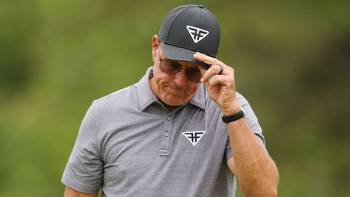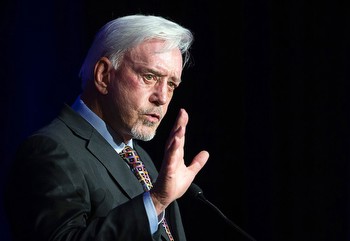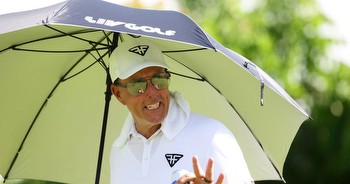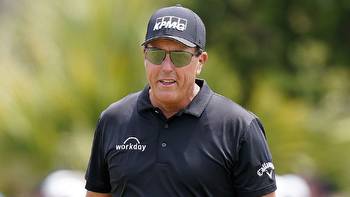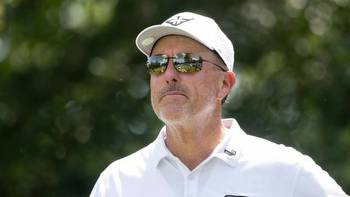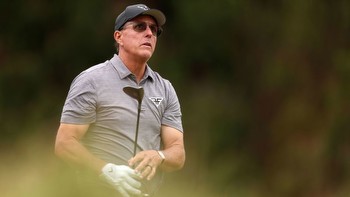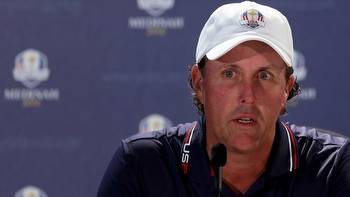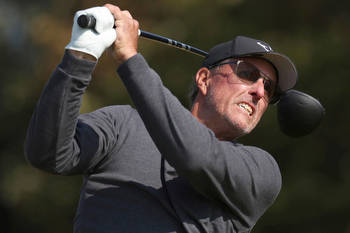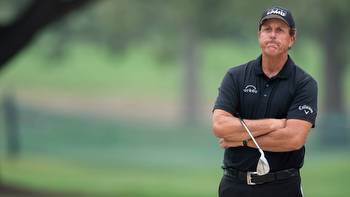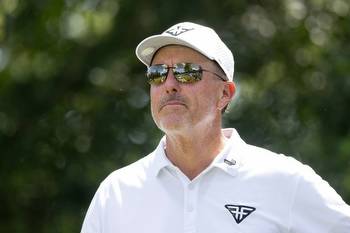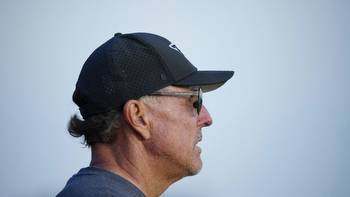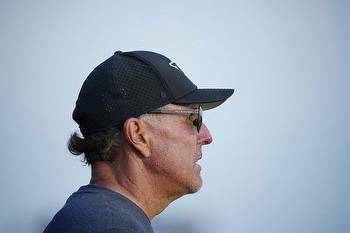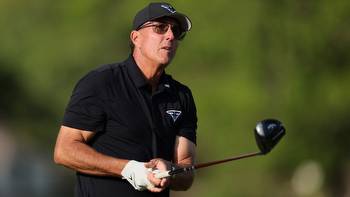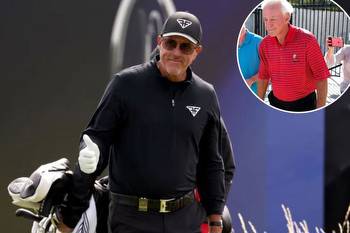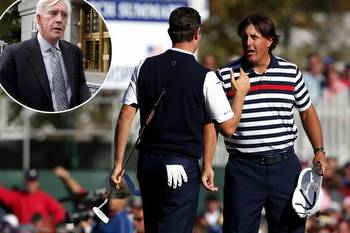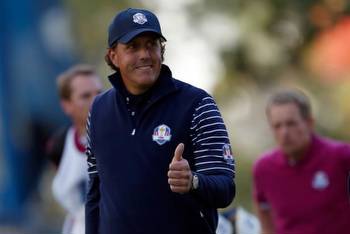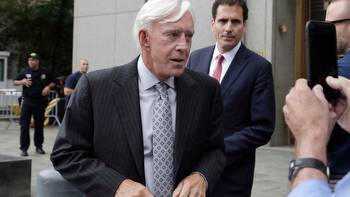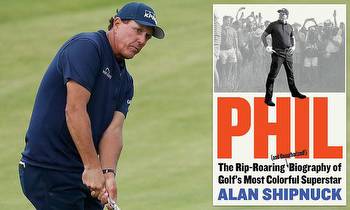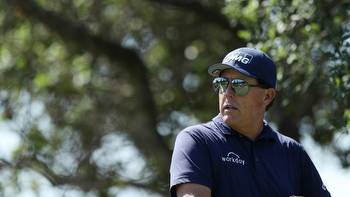Billy Walters details Phil Mickelson relationship with No Laying Up
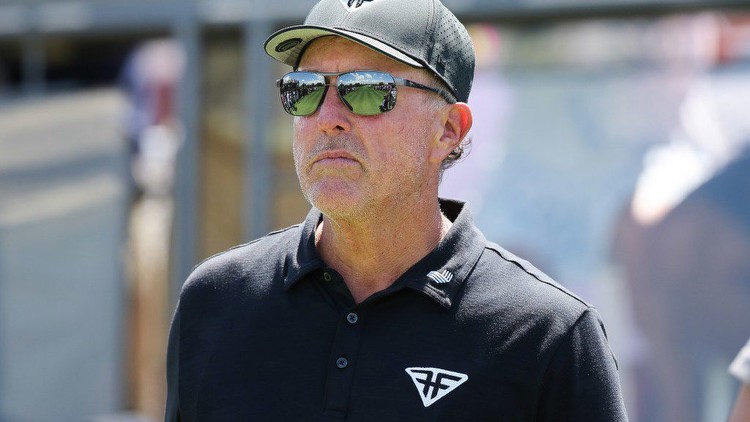
The anticipation for the upcoming release of the book “Gambler: Secrets from a Life at Risk” from noted gambler Billy Walters hit a new high after a recent excerpt highlighted Phil Mickelson’s gambling habits.
On the latest episode of the No Laying Up podcast, Walters said he wanted to write the book because he thought he could help those who come from similar backgrounds and battle addiction like he does. He began betting on sports at an early age when there was an “ignorant perception” of those who gambled. Now that gambling is legal across a majority of the United States, Walters wanted to share everything he knows about handicapping and betting with sports fans.
“I wouldn’t have sold this information for $30 million 10 years ago, but I’m 10 years older and I want to share this with sports fans,” said Walters. “It’s my legacy so to speak.”
He also wanted to set the record straight with regard to his conviction in the Southern District of New York for insider trading and his relationship with the six-time major champion Mickelson.
Walters was once regarded as one of the most successful sports bettors in the country. He was sentenced to five years in prison for conspiring to commit insider trading from at least 2008 through 2014, was convicted on all 10 counts against him, fined $10 million and sentenced to five years in prison in 2017. His book, which also goes into greater detail on the insider trading charges related to Dean Foods that sent him to jail, will be released on Aug. 22. Mickelson was a relief defendant in the civil suit, and agreed to pay back $1.03 million, including profit and interest.
Walters did partnerships with many people over the years both before and after Mickelson. The two met at the AT&T Pebble Beach Pro-Am in 2006 and didn’t see each other again until two years later at the 2008 Wachovia Championship in Charlotte. Walters ran into Mickelson in the locker room and he asked him how his partnerships worked.
The pair began a five-year betting partnership – a simple 50-50 split where each put up the same money – and a friendship that lasted about eight years.
Walters said Mickelson had nothing to do with the selections and the pair were successful enough that the bookmakers closed their accounts. Walters became concerned when he learned Mickelson had previously done business dating back to 1995 with two other men that led to a money laundering investigation.
“I was completely unaware of that, if I had been aware of that prior to starting our partnership I never would have had a partnership with him,” said Walters, who claimed one of the men went to federal prison for a $2.8 million wire transfer sent as a favor for Mickelson. As Walters tells it, the money was a gambling debt. From the podcast:
My understanding is the banks wouldn’t wire the money to these offshore bookmakers, so he asked one of the men to wire the money to him and then he would pay the offshore bookmakers. The guy agreed to do it as a favor and he wired him $2.8 million. The bank turned it in as suspicious activity, and that led to an investigation which included federal authorities.
The partnership then ended when the case with Walters and his Dean Food stock was investigated. Walters said the SEC wanted to interview Mickelson about some stock he had purchased and he took the fifth amendment. Walters said he confronted Mickelson to ask why and claims Lefty said his lawyers were concerned there would be questions about the separate money laundering investigation.
Walters then said Mickelson hired an attorney in Washington, D.C., and a settlement was worked out that saw Mickelson’s money laundering investigation go away. The one man went to prison and a statement was issued that Mickelson gave back $1 million made in a stock transaction. Walters argues that made him look guilty.
“Why would someone give $1 million back in a financial transaction if you or someone hadn’t done something wrong?” he asked.
During interviews with the FBI Walters claimed Mickelson told him he denied Walters had ever given him insider information. Walters also alleges Mickelson said he would testify. He did not.
“In retrospect the biggest mistake I made is myself not testifying,” admitted Walters. “But if Phil had testified, I am as sure as I am looking at you that I would’ve never gone to prison.”
Walters ran his betting operation like a business and kept detailed records:
- when a bet was made
- who it was made with
- who it was on
- did they win or lose and how much
In the book he has detailed accounts of tens of thousands of six-figure bets. Part of the bets in the book are ones Mickelson made with his other two associates and the rest are with his partnership with Walters.
“The reason I put that in the book was I wanted to, to me, life’s all about one that and that’s credibility. You either have it or you don’t. Either you’re truthful or you’re not truthful,” he said. “(Alan Shipnuck’s) book came out and disclosed the fact he had lost $40 million, and then later on (Mickelson said) ‘yeah I lost $40 million,’ but clearly he didn’t come clean about the entire thing. I felt we needed to set the record straight and tell the truth.”
The biggest revelation from the excerpt was where Walters alleged that Mickelson wanted to bet on the 2012 Ryder Cup, of which he was a member of the U.S. team.
“I couldn’t believe it,” said Walters. “Up until that time there had never even remotely been any kind of discussion about betting on golf.”
“I’m fairly confident he came to his senses and probably never made the bet. I didn’t say he ever made the bet, I just said he called me and attempted to make the bet,” he added. “I think he just got carried away in the moment and was so sure they were going to win.”
After initially declining to comment when approached during the LIV Golf Bedminster event, Mickelson released a statement saying he never bet on the Ryder Cup.

